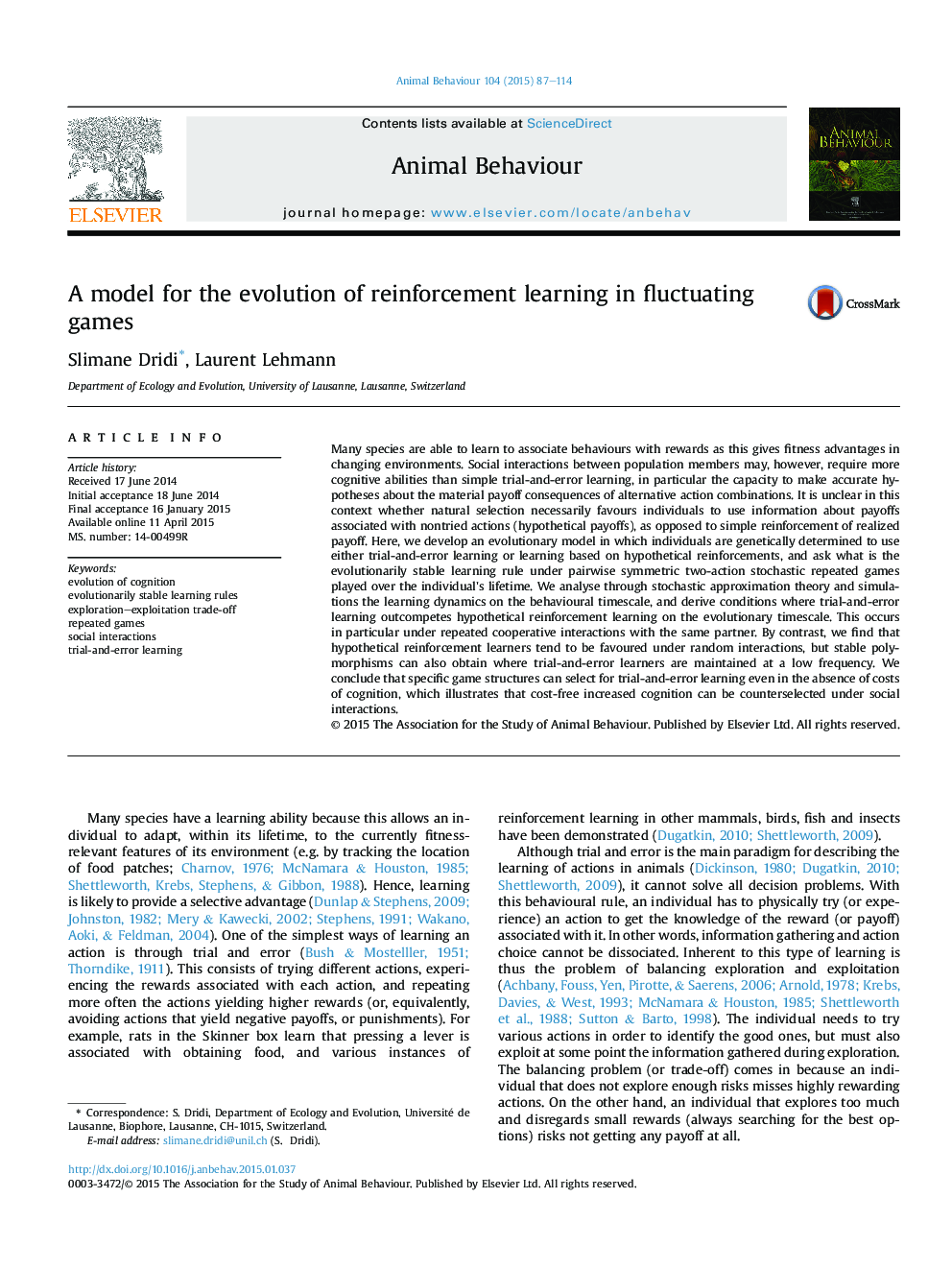| کد مقاله | کد نشریه | سال انتشار | مقاله انگلیسی | نسخه تمام متن |
|---|---|---|---|---|
| 2416296 | 1552224 | 2015 | 28 صفحه PDF | دانلود رایگان |
• We model natural selection on two learning rules in simple social interactions.
• We compare standard trial and error to learning based on hypothetical payoffs.
• We find that hypothetical reinforcement learning is not always selected for.
• Hypothetical reinforcement learning produces rational behaviour in one-shot games.
• Trial and error can prevail and establish cooperation in the Prisoner's Dilemma.
Many species are able to learn to associate behaviours with rewards as this gives fitness advantages in changing environments. Social interactions between population members may, however, require more cognitive abilities than simple trial-and-error learning, in particular the capacity to make accurate hypotheses about the material payoff consequences of alternative action combinations. It is unclear in this context whether natural selection necessarily favours individuals to use information about payoffs associated with nontried actions (hypothetical payoffs), as opposed to simple reinforcement of realized payoff. Here, we develop an evolutionary model in which individuals are genetically determined to use either trial-and-error learning or learning based on hypothetical reinforcements, and ask what is the evolutionarily stable learning rule under pairwise symmetric two-action stochastic repeated games played over the individual's lifetime. We analyse through stochastic approximation theory and simulations the learning dynamics on the behavioural timescale, and derive conditions where trial-and-error learning outcompetes hypothetical reinforcement learning on the evolutionary timescale. This occurs in particular under repeated cooperative interactions with the same partner. By contrast, we find that hypothetical reinforcement learners tend to be favoured under random interactions, but stable polymorphisms can also obtain where trial-and-error learners are maintained at a low frequency. We conclude that specific game structures can select for trial-and-error learning even in the absence of costs of cognition, which illustrates that cost-free increased cognition can be counterselected under social interactions.
Journal: Animal Behaviour - Volume 104, June 2015, Pages 87–114
